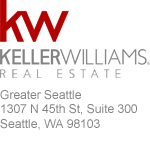Is Your Condo Rental Cap Legal & Enforceable?
An interesting ruling regarding rental restrictions at condominiums came up in September 2014 that Washington condo owners and potential buyers should be aware of.
In the case of Filmore LLLP vs. the Unit Owners Association of Centre Pointe Condominium, the Court of Appeals ruled that Centre Pointe’s rental restriction was not valid as it had not been approved by 90% of the total votes of the association.
The question centered around the term “use” and whether that pertained to residential vs. non-residential usage or if it also covered leasing of the unit. Under the Washington Condominium Act “use” changes require a 90% approval of the HOA while other changes need a super majority of 67% voter approval. The court found that leasing constituted usage so it was held to the higher 90% approval rate.
It may be possible that rental cap restrictions at a vast majority of Seattle area condos might no longer be enforceable given the 90% association voter approval ruling. And, if necessitated, it could be difficult for HOAs to muster a 90% vote of the association to amend or impose a rental cap restriction.
A lack of an enforceable rental cap restriction may have an adverse effect on condo owners and prospective buyers, particularly as it pertains to loan financing and condo occupancy guidelines.
I wonder if this could this also be used to address whether short-term rental restrictions (e.g. Airbnb) would also require a 90% approval of the owners.
The case involved new act condominiums, however, and a number of attorneys have brought up concerns and questions about the reach and impact of the ruling here, here and here.
It is possible that another case may arise at a condo with existing rental restrictions approved with less than 90% of the association voters. HOAs should consult their legal representatives for more information.




